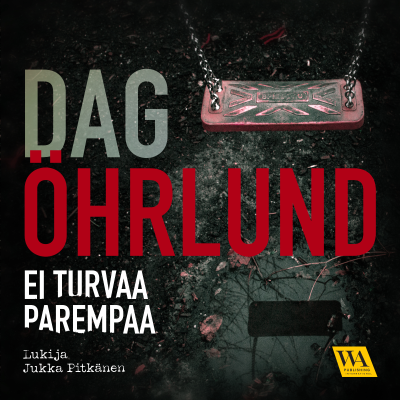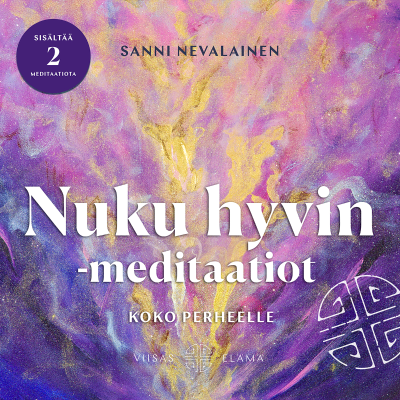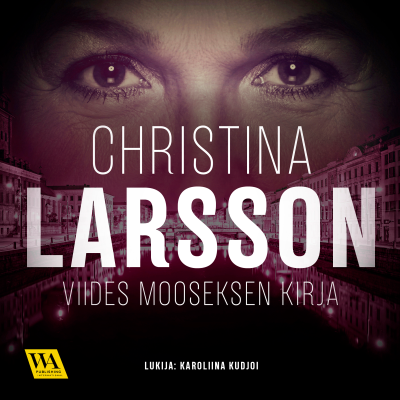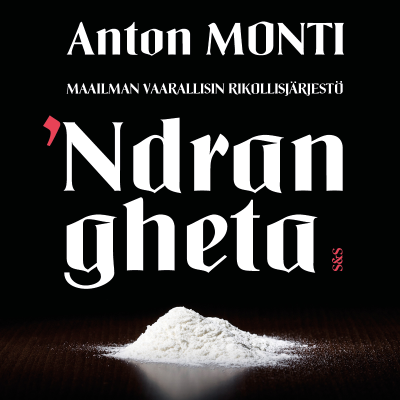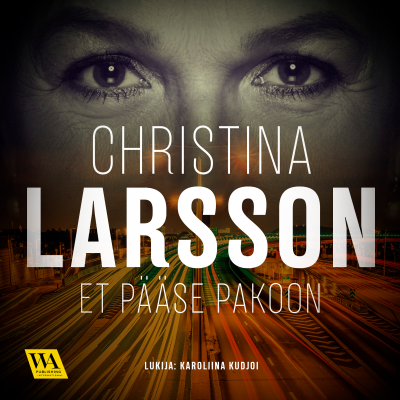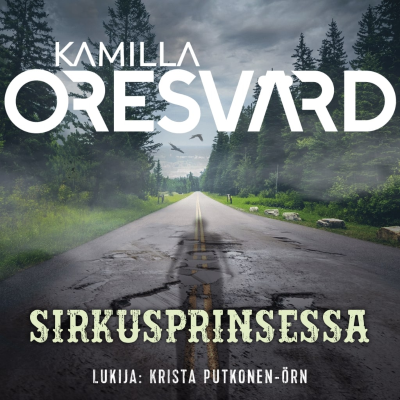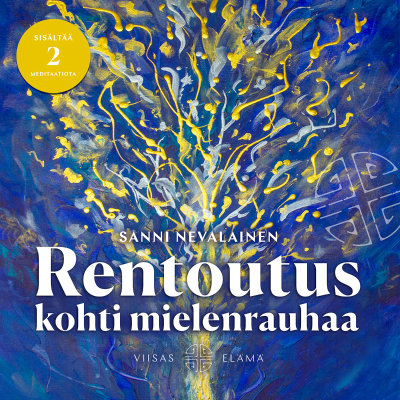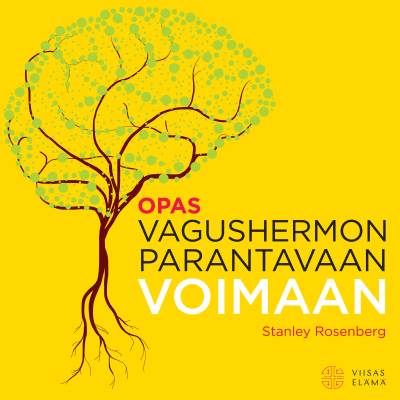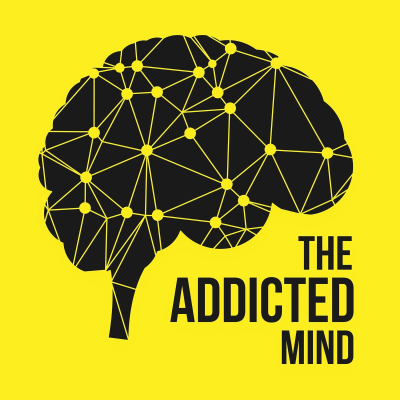
The Addicted Mind Podcast
Podcast by Duane Osterlind, LMFT
The Addicted Mind Podcast is about understanding addiction from a research and treatment perspective. We will dive into what drives the addictive process, explore the latest research on addiction, and talk about the latest addiction treatment options. We will also explore what recovery from addiction looks like from a variety of different people. If you or someone you know is struggling with addiction then The Addicted Mind Podcast can help.
90 vrk ilmainen kokeilu
Kokeilun jälkeen 7,99 € / kuukausi.Peru milloin tahansa.
Kaikki jaksot
257 jaksotAs we navigate the trials and tribulations of life, it's essential to remember that we're not alone. Like many of us, our guest for this episode, Elizabeth Cirrito, has journeyed through the dark tunnels of addiction, grief, and trauma. However, even in the bleakest of times, Liz found her guiding light in the power of community, resilience, and the strength of the human spirit. Liz's story resonates with the shared human experience, the fear of vulnerability, and the formidable 'shame monster' that lurks in the shadows of our psyche. In our candid conversation, Liz courageously opens up about her childhood exposure to addiction, the sudden loss of her stepdad, and the unfolding trauma that led her to seek refuge in substances. But amidst the chaos, Liz discovered the transformative power of resilience, support, and the healing potential of Internal Family Systems that allowed her to regain control and start rebuilding her life. From navigating the intricacies of mental health stigma to the complex dynamics of grief, this episode is a deep exploration of the human spirit's strength. Liz's personal experiences offer genuine insights into addiction as a response to suffering, and how acknowledging and taming the 'shame monster' can facilitate healing. Listen in as Liz shares invaluable lessons learned from her recovery journey, her commitment to aiding others, and the affirmation that we are all worthy of healing and support. An episode sure to touch hearts and inspire, it's a testament to the power of the human spirit to overcome even the most daunting challenges. In this episode, you will hear: * Power of resilience in addiction recovery * Trauma and taboo of mental health * Overcoming grief and addiction * Overcoming shame and building community * Internal family systems and healing * Healing and helping other people heal their pain Follow and Review: We’d love for you to follow us if you haven’t yet. Click that purple '+' in the top right corner of your Apple Podcasts app. We’d love it even more if you could drop a review or 5-star rating over on Apple Podcasts [https://podcasts.apple.com/us/podcast/the-addicted-mind-podcast/id1268632042]. Simply select “Ratings and Reviews” and “Write a Review” then a quick line with your favorite part of the episode. It only takes a second and it helps spread the word about the podcast. Supporting Resources: NovusMindfulLife.com [http://www.novusmindfullife.com/] Episode Credits If you like this podcast and are thinking of creating your own, consider talking to my producer, Emerald City Productions. They helped me grow and produce the podcast you are listening to right now. Find out more at https://emeraldcitypro.com [https://emeraldcitypro.com/] Let them know we sent you. Learn more about your ad choices. Visit megaphone.fm/adchoices [https://megaphone.fm/adchoices]
The fear of abandonment is universal. The problem is – we try to medicate that feeling with whatever gives us instant gratification (drugs, alcohol, food, television, sleeping, social media, shopping, etc.) Whatever that looks like, addiction can stem from an unhealed abandonment wound. And when you fail to take care of that wound, it can lead to self-sabotage. So how do we heal our abandonment issues? On today’s episode, Duane speaks with Susan Anderson, founder of Abandonment Recovery, a program that helps people with numerous issues such as heartbreak loss, self-sabotage, addiction, and compulsion. Susan shares her own story of how she got into this work of dealing with abandonment. Susan gives us an illustration of what abandonment looks like, how it impacts our life, and what we can do to overcome it. Susan points out that overcoming abandonment is a doing process. Therefore, just knowing about it isn't necessarily going to help you overcome the wound that may be negatively impacting your life. There needs to be action. In this episode, you will hear: * Why abandonment is universal * The correlation between abandonment and addiction * Loneliness as a huge adult trigger * Early abandonment vs. normal level of abandonment * Self-sabotage and the outer child * Forms of self-sabotage * The power of visualization Key Quotes: [02:36] - "Abandonment translates to separation anxiety, which is something we all share as human beings. It's universal and we medicate that feeling.” [04:16] - “We all have a fear of abandonment, and when it's triggered by an adult experience, it can create a cascade of hormonal processes in the brain. No matter how strong we are, we can all experience a serious emotional crisis if the trigger is big enough in adulthood." [05:37] - "Overcoming abandonment is a doing process, not just a feeling process. It's a recovery. It's an ongoing process." [10:53] - "When we are going through an adult trigger, even if it's a mild trigger, the thing that we are most vulnerable to is becoming addicted to a substance or to an activity." [19:01] - "If you've had a lot of abandonment, you have a lot of self-sabotage... and you repeat the thing that's so familiar." [29:16] "You don't have to make gigantic changes to have your dreams start to line. You need to make enough of a change just to get that door to swing. It's an amazing thing that small changes make huge differences." [34:18] "Everyone's looking for a magic bullet that's why addictions are so popular... but they have to enter on a journey of developing a new relationship with themselves and it's something they have to really work out and take very seriously." Subscribe and Review Have you subscribed to our podcast? We’d love for you to subscribe if you haven’t yet. We’d love it even more if you could drop a review or 5-star rating over on Apple Podcasts [https://podcasts.apple.com/us/podcast/the-addicted-mind-podcast/id1268632042]. Simply select “Ratings and Reviews” and “Write a Review” then a quick line with your favorite part of the episode. It only takes a second and it helps spread the word about the podcast. If you really enjoyed this episode, we’ve created a PDF that has all of the key information for you from the episode. Just go to the episode page at www.theaddictedmind.com [http://www.theaddictedmind.com] to download it. Supporting Resources: NovusMindfulLife.com [http://www.novusmindfullife.com/] Abandonment Recovery https://www.abandonment.net/ [https://www.abandonment.net/] Episode Credits If you like this podcast and are thinking of creating your own, consider talking to my producer, Emerald City Productions. They helped me grow and produce the podcast you are listening to right now. Find out more at https://emeraldcitypro.com [https://emeraldcitypro.com/] Let them know we sent you. Learn more about your ad choices. Visit megaphone.fm/adchoices [https://megaphone.fm/adchoices]
Today, let’s journey through the realms of neuroscience, addiction research, and the promising future of treatment strategies for substance use disorders. On this episode, Duane speaks with Dr. Paul Kenny, a distinguished figure in neuroscience and addiction research. He unravels his research on signaling cascades in rodents' brains, providing fascinating insights into addiction-like behaviors. The discussion turns engaging as Paul illuminates his groundbreaking work with certain treatments and their potential role in addressing cravings and motivation in substance use disorders is nothing short of fascinating. They also steer the conversation towards an area often overlooked, which is the relationship between drugs, addiction, and satiety. Paul dissects how potent drugs like cocaine and heroin trigger extreme pleasure and consequently, substance use disorders. He shares his insights into how the satisfaction derived from drug use and the ritualistic patterns of drug consumption could be altered to reduce dependence. This episode sheds light on the promising field of addiction research and the need to raise public awareness of the issue. This is a testament to the incredible work being done by Cure Addiction Now. By understanding the brain's role in addiction, we can potentially change the way we approach substance use disorders and find innovative ways to help those struggling with addiction. In this episode, you will hear: * Groundbreaking research on addiction treatment * Exploring medications to control cravings and motivation * Drugs, addiction, and satiety relationship * GLP-1 enhancers and their potential to treat drug addiction * Exploring GLP-1 modulators for addiction treatment * About Cure Addiction Now Follow and Review: We’d love for you to follow us if you haven’t yet. Click that purple '+' in the top right corner of your Apple Podcasts app. We’d love it even more if you could drop a review or 5-star rating over on Apple Podcasts [https://podcasts.apple.com/us/podcast/the-addicted-mind-podcast/id1268632042]. Simply select “Ratings and Reviews” and “Write a Review” then a quick line with your favorite part of the episode. It only takes a second and it helps spread the word about the podcast. Supporting Resources: Cure Addiction Now https://cureaddictionnow.org/ [https://cureaddictionnow.org/] NovusMindfulLife.com [http://www.novusmindfullife.com/] Episode Credits If you like this podcast and are thinking of creating your own, consider talking to my producer, Emerald City Productions. They helped me grow and produce the podcast you are listening to right now. Find out more at https://emeraldcitypro.com [https://emeraldcitypro.com/] Let them know we sent you. Learn more about your ad choices. Visit megaphone.fm/adchoices [https://megaphone.fm/adchoices]
What does a data-driven approach to addiction recovery look like? Allow Dr. Jared Dempsey and Hunter Williams, the brilliant minds behind TRAC9, to guide you through their innovative platform. Drawing from personal encounters with addiction, they've developed a solution that goes beyond conventional treatments, utilizing the power of data collection, monitoring symptoms, and scientifically validated assessments. Their work emphasizes the importance of ethics in patient data collection, creating a secure environment for individuals in recovery. TRAC9 isn't just a platform; it's a game-changer in the field of addiction treatment. By analyzing subtle changes and symptoms in patients, TRAC9 enables health professionals to tailor treatments, increasing the probability of successful recovery. Reliable data is a treasure trove of insights that could revolutionize the way we understand and treat addiction. Here, patients find a safe haven, where they can be more honest on paper than in direct communication with a provider, offering invaluable insights for treatment success rates. But the magic doesn't end there. Using the cutting-edge fields of machine learning and habituation, TRAC9 goes beyond data collection. It creates predictive models that generate neurochemical reactions to visual triggers, helping to reduce instinctive cravings. By evaluating nine core elements of addiction and two measures of craving, TRAC9 forges a comprehensive path to recovery. Discover how this platform is making waves in the field of addiction, and how it could help you or a loved one find the way towards a sober life. In this episode, you will hear: * A data-driven approach to addiction recovery * Monitoring symptoms for addiction treatment success * Data collection's impact on addiction treatment * Understanding addiction treatment and data analysis * TRAC9 and making a difference Follow and Review: We’d love for you to follow us if you haven’t yet. Click that purple '+' in the top right corner of your Apple Podcasts app. We’d love it even more if you could drop a review or 5-star rating over on Apple Podcasts [https://podcasts.apple.com/us/podcast/the-addicted-mind-podcast/id1268632042]. Simply select “Ratings and Reviews” and “Write a Review” then a quick line with your favorite part of the episode. It only takes a second and it helps spread the word about the podcast. Supporting Resources: NovusMindfulLife.com [http://www.novusmindfullife.com/] Episode Credits If you like this podcast and are thinking of creating your own, consider talking to my producer, Emerald City Productions. They helped me grow and produce the podcast you are listening to right now. Find out more at https://emeraldcitypro.com [https://emeraldcitypro.com/] Let them know we sent you. Learn more about your ad choices. Visit megaphone.fm/adchoices [https://megaphone.fm/adchoices]
In a society where the realms of justice, recovery, and public policy intersect in myriad ways, understanding these intersections and how they impact individuals is crucial. There are barriers, often intertwined with justice system involvement, which can pose significant challenges. For instance, minor offenses can escalate into arrest warrants, posing a significant challenge for those already grappling with recovery and housing insecurity. Join Duane in this riveting conversation with Meghan M. O’Neil PhD, Research Scholar, Drug Enforcement Policy Center, The Ohio State University, who dedicates her work to confronting racial and economic inequality's impacts on health. Duane and Meghan delve into the civil justice issues that can create substantial barriers for individuals in early recovery. Megan emphasizes the critical importance of housing in the recovery process, and the struggles faced by individuals in early recovery in securing a stable living environment. Meghan also gives a first-hand look at her groundbreaking Removing Barriers Experiment, which promises to revolutionize opioid treatment centers. Meghan's unique insights, fueled by her family's struggles with substance misuse, shed unique light on the multifaceted challenges that people in early recovery face. Her innovative approach to breaking down barriers includes the creation of online court resources for those in recovery. She shares her journey of connecting with the local recovery community, facilitating access to vital services, and fostering open communication with the court system. Leave this discussion with a profound understanding of the hurdles that individuals in recovery must overcome – from navigating an often unforgiving justice system to the struggle of securing stable housing. In this episode, you will hear: * Insights on public policy, racial and economic inequality * How Meghan’s Removing Barriers Experiment aims to address the opioid crisis * Creating online court resources for recovery * Removing barriers to recovery and re-entry * Civil justice barriers for vulnerable populations * Housing's importance in addiction recovery * Issues in the housing and justice system Follow and Review: We’d love for you to follow us if you haven’t yet. Click that purple '+' in the top right corner of your Apple Podcasts app. We’d love it even more if you could drop a review or 5-star rating over on Apple Podcasts [https://podcasts.apple.com/us/podcast/the-addicted-mind-podcast/id1268632042]. Simply select “Ratings and Reviews” and “Write a Review” then a quick line with your favorite part of the episode. It only takes a second and it helps spread the word about the podcast. Supporting Resources: Removing Barriers Experiment: https://meghanoneilcom.wordpress.com/removing-barriers-to-recovery/ [https://meghanoneilcom.wordpress.com/removing-barriers-to-recovery/] NovusMindfulLife.com [http://www.novusmindfullife.com/] Episode Credits If you like this podcast and are thinking of creating your own, consider talking to my producer, Emerald City Productions. They helped me grow and produce the podcast you are listening to right now. Find out more at https://emeraldcitypro.com [https://emeraldcitypro.com/] Let them know we sent you. Learn more about your ad choices. Visit megaphone.fm/adchoices [https://megaphone.fm/adchoices]
90 vrk ilmainen kokeilu
Kokeilun jälkeen 7,99 € / kuukausi.Peru milloin tahansa.
Podimon podcastit
Mainoksista vapaa
Maksuttomat podcastit










